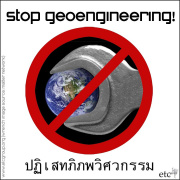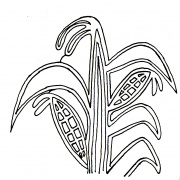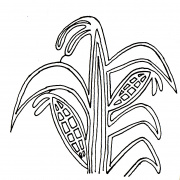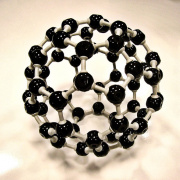White Roofs, Black Dust And Slippery Slopes
Submitted by ETC Staff on
U.S. Energy Secretary Steven Chu’s speech last week advocating painting rooftops and roadways white to reflect sunlight may be yet another attempt to test the international waters on the controversial subject of geoengineering.[1] “We need an unequivocal statement from the White House that the U.S. Government is not green-lighting geoengineering in the run-up to Copenhagen,” said Pat Mooney, Executive Director of ETC Group, an Ottawa-based civil society organization monitoring new technologies.
Declaración de la Red en Defensa del Maíz contra la liberación de maíz transgénico en México, su centro de origen
Submitted by ETC Group on
Esta declaración contra el maíz transgénico fue enviada a la FAO y al CDB en mayo de 2009. Al hacerse pública, contaba ya con el apoyo de más d 700 organizaciones y miles de individuos. Para finales de 2009, la declaración de la Red en Defensa del Maíz contra la liberación de maíz transgénico en México era suscrita por más de 8 mil organizaciones y personas en todo el planeta. Ver los PDFs.
Dr. Jacques Diouf,
Director General
Organización Naciones Unidas para la Alimentación y la Agricultura (FAO)
Viale delle Terme di Caracalla
Carta de la Red en Defensa del Maíz contra la liberación de maíz transgénico en México
Submitted by ETC Group on
Esta carta se publicó en varios idiomas y salió a circulación contanco con firmas de más de 700 organizaciones y miles de personas. Hacia fin de 2009, habían suscrito la protesta más de 8 mil organizaciones y personas de todo el planeta. Consultar el PDF.
Ministro Sigmar Gabriel
Presidente de la Mesa del Convenio de Diversidad Biológica
z.H. Sören Heinze
Platz der Republik 1
11011 Berlin
Alemania
ONGs frustradas ante las conclusiones sobre nanotecnología de la Conferencia Internacional sobre Manejo de Químicos
Submitted by ETC Staff on
Ginebra - “Las acciones sobre nanotecnología que se acordaron hoy no reflejan la urgencia del tema. Se alertó a los delegados de que los nanomateriales constituyen un riesgo intergeneracional, puesto que las nano partículas se pasan de madre a hijo vía la sangre materna, sin embargo esos riesgos parecen haber sido ignorados en la respuesta que dió la 2a Conferencia Internacional sobre Manejo de Químicos-ICCM2”, expresó Mariann Lloyd Smith, co Presidenta del IPEN.
NGOs disappointed at nano outcomes from International Conference on Chemical Management
Submitted by ETC Staff on
Geneva -- “The actions on nanotechnology that were agreed upon today do not reflect the urgency of the issue. The delegates were made aware that nanomaterials are an intergenerational risk, with nanoparticles being passed from mother to child via maternal blood. Yet these risks appear to have been ignored in the response by ICCM2," said Dr. Mariann Lloyd-Smith, IPEN CoChair.
“We are a long way from the statement that was adopted less than a year ago at the meeting organized by the International Forum on Chemical Safety in Dakar,” said Diana Bronson from ETC Group. “There, governments, industry, trade unions and non-governmental organizations had agreed that the precautionary principle needed to be applied, that countries should have the right to say no to nanotechnology and that special measures need to be taken to protect vulnerable groups. We got none of that in Geneva.”




